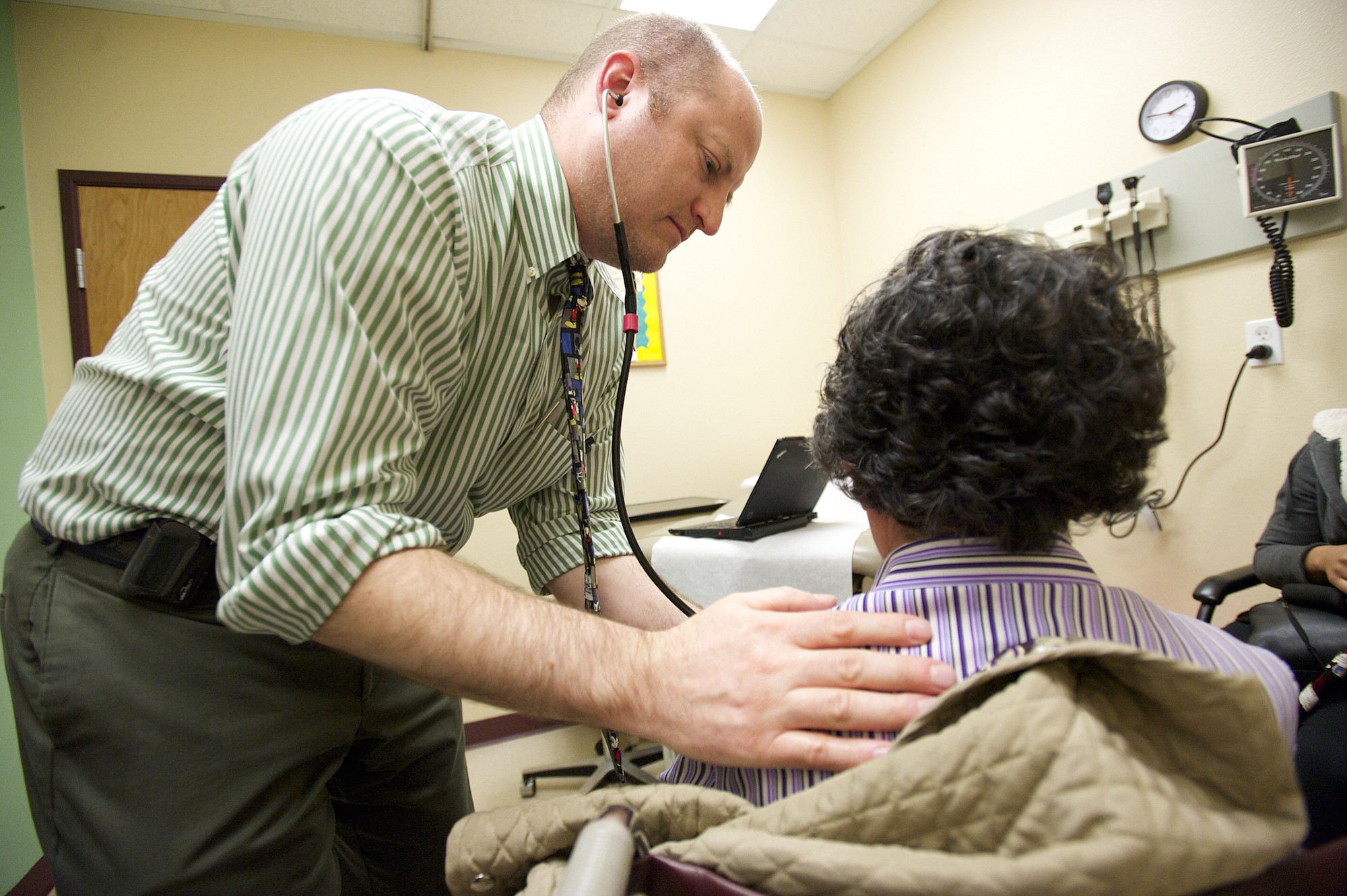When Dr. Tony Stupski completed medical school, he entered the workforce with $170,000 in student loan debt.
Stupski had an opportunity to get state and federal assistance in paying off those loans. In exchange, he had to commit to working in primary care in medically underserved communities.
More than eight years later — several years after his commitment and the funding ended — Stupski is still caring for patients in underserved areas. For the past four years, he’s worked at Sea Mar Community Health Centers’ Vancouver medical clinic.
“I felt like it was a win-win,” Stupski said. “The salaries for primary care providers working in those places tend to not be as high as private practices. The loan payment program helps with that.”
“It was an incentive for sure,” he added.
The state program that benefited Stupski — the Health Professional Loan Repayment Program — was drastically cut back in 2011 due to budget constraints. Since then, the state has provided $525,000 per year to the program, just enough to ensure federal matching funds, said Rachelle Sharpe, with the Washington Student Achievement Council, the organization that administers the program in collaboration with the state health department.
Providers, community health centers and state officials hope to see the program restored to its prior levels this year. Doing so, they say, will help meet the growing need for primary care providers since the Medicaid expansion implemented in October 2013 added tens of thousands of people to the state-funded insurance plan.
“This is getting a positive reception from both sides,” said Molly Firth, the director of public policy for the Community Health Network of Washington, a nonprofit network of community health centers. “People seem to really understand we have to do something about the primary care shortage and improving access to care.”
Firth expects program funding to be included in at least one, if not both, legislative budgets. The governor’s budget proposes restoring the program funding.
If legislators don’t extend the suspension of the program, it will be restored to its previous funding level of $7.65 million per biennium, Firth said.
“Asking to get it back to what it was before the recession, it’s very measured and it’s reasonable,” Firth said.
When funded, the Health Professional Loan Repayment Program provides each recipient up to $35,000 per year for a minimum of two years. One-year extensions are available as funding allows.
In exchange for the loan repayment, the recipient must provide primary health care at eligible medical clinics in rural or underserved urban areas with designated shortages. The program isn’t only for physicians; other eligible professions include nurse practitioner, physician assistant, midwife, registered nurse, pharmacist, dentist and registered dental hygienist.
The program not only helps to recruit providers to underserved areas, it also helps to retain the providers, Firth said.
“Community health centers really value this program because they can’t offer the same salaries and benefits and bonuses that other clinics can,” she said.
For Stupski, the program allowed him to pursue the career he wanted and support his family.
“It balanced things out,” he said. “It enabled me to do the work I really wanted to do … and it enabled us to afford it.”
Without the help repaying his loans, Stupski admits he may have been tempted to leave community health centers. He’s seen other providers do just that when they were turned down for the program.
In the last year, two primary care providers left the Vancouver clinic for that reason. One moved to Seattle; the other went to a Portland clinic and applied for the Oregon loan repayment program, Stupski said.
“The underfunding really hurt us,” Stupski said.
“It hurts to see your colleague leave,” he added. “The need they were filling doesn’t go away.”
As a result, access is getting more difficult, Stupski said. An adult patient typically has to wait two months to get an appointment with their primary care provider at the clinic, he said.
“Loan repayment is a huge way to incentivize providers, especially young providers,” Stupski said. “It’s the way you’re going to be able to serve the Medicaid population.”




